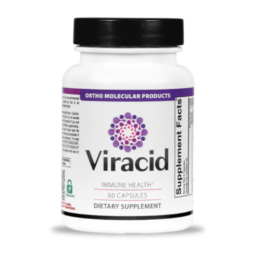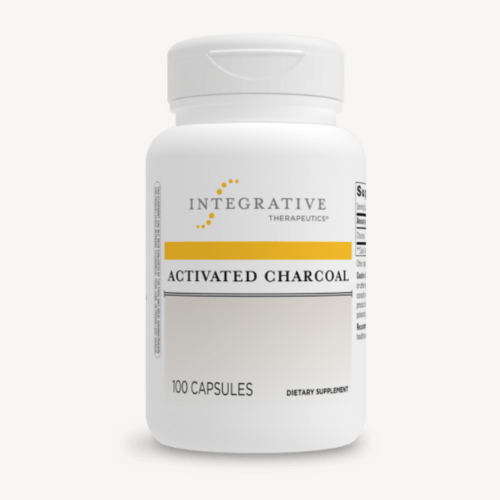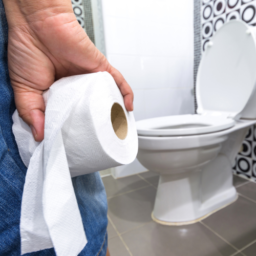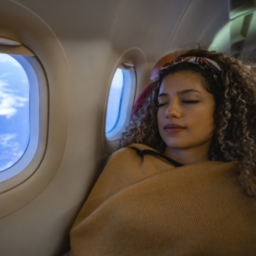
Let’s just take a minute to be thankful for traveling!! It has been an isolative few years and now that we get to mosey out and visit each other, we could all use a reminder on how best to stay healthy while traveling. Traveling typically challenges three main areas with people—the immune system (as we encounter new germs), the digestive system (manifesting as diarrhea and constipation), and the nervous system (who hasn’t had sleep issues on the road?).
Immune System Support
Especially coming off this pandemic, we are more aware of the germs around us. Even though it is hugely unfair, sometimes people pick up a cold or flu during their vacation. Battling this infection while not in the comfort of your own home is doubly unfair. This is why immune support is essential.
 First, know your vitamin D level. Vitamin D supports both your pathogen-fighting and tissue-healing immune cells. It is a “modulator” or trainer for the immune system, helping your viral and bacterial immune cells work better1. Whenever someone tells me they take Vitamin D, my first question is, ”what is your vitamin D level?” This is a blood test that is drawn usually at your physical. In order to dose the vitamin D adequately, you need to know your blood value from the test. Many times people take vitamin D, but they are flying blind on the dosing. If you truly don’t know, a guessing dose is an easy 2,000 IU per day. Pure Encapsulations makes a great cost-effective D and you can portion out your daily amount for when you’re away. Vitamin D also comes in liquids and gummies.
First, know your vitamin D level. Vitamin D supports both your pathogen-fighting and tissue-healing immune cells. It is a “modulator” or trainer for the immune system, helping your viral and bacterial immune cells work better1. Whenever someone tells me they take Vitamin D, my first question is, ”what is your vitamin D level?” This is a blood test that is drawn usually at your physical. In order to dose the vitamin D adequately, you need to know your blood value from the test. Many times people take vitamin D, but they are flying blind on the dosing. If you truly don’t know, a guessing dose is an easy 2,000 IU per day. Pure Encapsulations makes a great cost-effective D and you can portion out your daily amount for when you’re away. Vitamin D also comes in liquids and gummies.
If there was a first-place award I could give to an antiviral herb, I would choose andrographis. Historically, it has been used in herbal medicine for stomach pain, fevers, and respiratory ailments. In India, it has been used for poisonous snake-bites and stings. Studies on andrographis have shown mast-cell stabilizing/antihistamine qualities and antibacterial and antifungal capability. Andrographis has been shown to be 2.1 times more effective than placebo in reducing symptoms of upper respiratory tract infections.2
Viracid and Complivir are two andrographis formulas that we regularly recommend to customers and clients getting ready to travel. With Viracid, you can take 1-2 caps per hour for about 8 hours right at the onset of a flu or a cold. Complivir has an acute dosing as well – 3 tablets 2x per day for up to 10 days. I have nipped many colds and prevented calling in sick with these formulas.
and Complivir are two andrographis formulas that we regularly recommend to customers and clients getting ready to travel. With Viracid, you can take 1-2 caps per hour for about 8 hours right at the onset of a flu or a cold. Complivir has an acute dosing as well – 3 tablets 2x per day for up to 10 days. I have nipped many colds and prevented calling in sick with these formulas.
Gut Support
Many people have difficulty with their digestive systems when they travel. Whether it is exposure to inflammatory foods or new microbes, or a tendency toward constipation, traveling with a few key supplements can be a game-changer. I always recommend traveling with probiotics, activated charcoal, magnesium, and DPPIV.
 Traveler’s diarrhea is actually an intestinal infection from drinking contaminated water or eating food cooked or washed with that water. Activated charcoal is a go-to for absorbing and expelling toxins from the gastrointestinal tract. Bacteria and viruses that cause diarrhea do so by excreting endotoxins. Activated charcoal acts like a sponge, absorbing these toxins and eliminating the diarrhea.3
Traveler’s diarrhea is actually an intestinal infection from drinking contaminated water or eating food cooked or washed with that water. Activated charcoal is a go-to for absorbing and expelling toxins from the gastrointestinal tract. Bacteria and viruses that cause diarrhea do so by excreting endotoxins. Activated charcoal acts like a sponge, absorbing these toxins and eliminating the diarrhea.3
Symptom relief typically takes around 30-60 minutes after you take 2-3 capsules. It is recommended to take activated charcoal 2 hours away from other medications and supplements. Integrative Therapeutics makes a very high-quality activated charcoal and there are other formulas like Medi-Clay that contain activated charcoal as well as bentonite clay and similar agents.
For those who get digestive upset when they come into contact with inflammatory foods like gluten and dairy, enzymes can be very effective for mitigating an irritable bowel flare. Dipeptidyl Peptidase IV (DPP-IV) is one of these enzymes that breaks down gluten and gliadin (the proteins in wheat), as well as casein and whey (the proteins in cow’s milk). DPP-IV also reduces modulating pain signals and promotes tissue healing.4 GlutenEase Extra Strength and Intolerance Complex are two enzyme formulas with high amounts of DPP-IV.
 Some people experience constipation when they travel. It may be attributed to many factors – different foods and routines, but also sitting inactive in a car, plane, bus, or train will slow the bowels, especially if we are not drinking much water. The stress of a new routine, or nerves involving traffic or flying also play into constipation. Even though the trip itself can be fun, it can be unnerving getting to your destination. Whatever the reason, a little preparation ahead of time can go a long way.
Some people experience constipation when they travel. It may be attributed to many factors – different foods and routines, but also sitting inactive in a car, plane, bus, or train will slow the bowels, especially if we are not drinking much water. The stress of a new routine, or nerves involving traffic or flying also play into constipation. Even though the trip itself can be fun, it can be unnerving getting to your destination. Whatever the reason, a little preparation ahead of time can go a long way.
Magnesium is one of the safest things to use on the body with fewest drug interactions. Magnesium Oxide (Mag07) or Magnesium Citrate are two of the best osmotic laxatives. If you have kids that tend toward constipation, Calm is a magnesium powder that comes in travel sizes that can be mixed with juice. The new gummy form makes it even easier to take. Dosing usually starts at 150-200 mg for kids and 250-300 mg for adults, adding 100-150 mg every 20-30 minutes until you produce a bowel movement. If you get a watery-loose stool, then back off on the magnesium by about 100-200 mg, the dose was too much. Magnesium is not “toxic” per se, but you don’t want to have a loose stool for longer than a few days or you run the risk of dehydration.
Sleep Support
 If you are traveling far, into new time zones, sleep can really be thrown for a loop. Melatonin and JetZone are game-changers for jet lag. JetZone is a combination of homeopathics in chewable tablets. It is safe for children and does not interfere with medications. Typically, people take one tablet prior to take off and then 1 tablet every couple of hours on the plane ride. I have not used this product myself, but we have Peoples Rx customers and staff who swear by it.
If you are traveling far, into new time zones, sleep can really be thrown for a loop. Melatonin and JetZone are game-changers for jet lag. JetZone is a combination of homeopathics in chewable tablets. It is safe for children and does not interfere with medications. Typically, people take one tablet prior to take off and then 1 tablet every couple of hours on the plane ride. I have not used this product myself, but we have Peoples Rx customers and staff who swear by it.
Melatonin is a hormone released by your brain’s pineal gland that makes you sleepy. When the sun goes down, the pineal is prompted to secrete melatonin. With travel, especially across several time zones, this rhythm is often disrupted. Doses of 0.5 to 5 mg 20-30 minutes before sleep has been well proven to help with jet-lag5. An important question to ask a sleep-challenged person is, “Is it hard to fall asleep, stay asleep or both?” Difficulty falling asleep may require a larger initial dose of melatonin (in adults, you can dose up to 10 mg if necessary). Sustained-release melatonin helps if someone is more challenged with staying asleep vs falling asleep. Someone who struggles with both may actually benefit from both. I really like that there are many forms of melatonin—from gummies to liquids, to chewables—it really is easy to take.
I know all these supplements may seem like a lot, but considering the discomfort they prevent, it’s worth it! You don’t have to have a separate suitcase for these either. Many can be portioned out into travel pill containers (Peoples carries these as well). It is not fun being ill on vacation, so being prepared will save you heartache and make it that much easier to enjoy your time with your loved ones. Happy travels!
BONUS PRO TIP: When you’re out of your everyday routine on the road, exercise is another thing that can slip. Take the time to incorporate movement into your days, even if it’s just with short walks. Better yet – treat yourself to something special while away and support local this year – sign up for an online class with our friends at Castle Hill Fitness! They’ve got everything from Yoga and Pilates to Barre and Qigong and most classes are “All Level.”
If you have comments and/or questions about this blog, email us at blog@peoplesrx.com.

Amy Nelson, ND* received her Naturopathic Doctorate from the National College of Natural Medicine in Portland, OR where she studied nutrition, homeopathy, herbal and functional medicine. In addition, Dr. Nelson was the Associate at The IBS Treatment Center in Santa Monica where she treated irritable bowel syndrome and complex food allergies. Dr. Nelson utilizes her experience in natural medicine to address female and male hormonal imbalances, mental health, and digestive disorders. Amy is available for consultation at Peoples Lakeline.
*Although licensed in other states, Naturopathic Doctors are not currently licensed in Texas.
References:
- Aranow C. Vitamin D and the immune system. J Investig Med. 2011 Aug;59(6):881-6. doi: 10.2310/JIM.0b013e31821b8755. PMID: 21527855; PMCID: PMC3166406.
- Okhuarobo A, Falodun JE, Erharuyi O, Imieje V, Falodun A, Langer P. Harnessing the medicinal properties of Andrographis paniculata for diseases and beyond: a review of its phytochemistry and pharmacology. Asian Pac J Trop Dis. 2014 Jun;4(3):213–22. doi: 10.1016/S2222-1808(14)60509-0. PMCID: PMC4032030.
- Senderovich H, Vierhout MJ. Is there a role for charcoal in palliative diarrhea management? Curr Med Res Opin. 2018 Jul;34(7):1253-1259. doi: 10.1080/03007995.2017.1416345. Epub 2018 Jan 10. PMID: 29231746.
- Olivares M, Schüppel V, Hassan AM, Beaumont M, Neyrinck AM, Bindels LB, Benítez-Páez A, Sanz Y, Haller D, Holzer P, Delzenne NM. The Potential Role of the Dipeptidyl Peptidase-4-Like Activity From the Gut Microbiota on the Host Health. Front Microbiol. 2018 Aug 22;9:1900. doi: 10.3389/fmicb.2018.01900. PMID: 30186247; PMCID: PMC6113382.
- Herxheimer A, Petrie KJ. Melatonin for the prevention and treatment of jet lag. Cochrane Database Syst Rev. 2002;(2):CD001520. doi: 10.1002/14651858.CD001520. PMID: 12076414.
